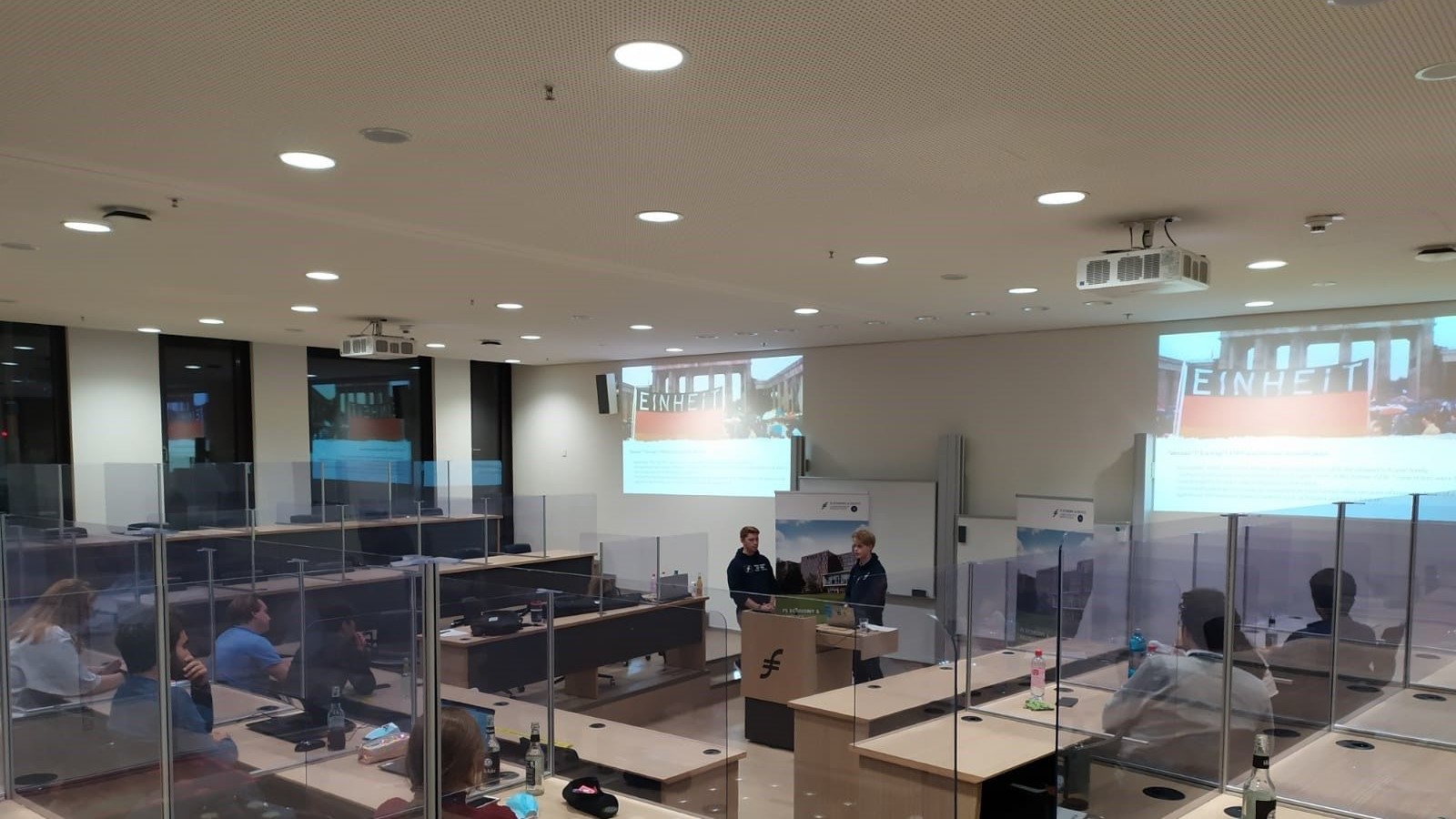"jcr:497431bd-80c1-4b58-94a5-46ccc29235ae" (String)
Choose your language
Bachelor in Management, Philosophy & Economics (BSc)

incl. 1 semester abroad (tuition fee may differ)
*excl. 100 EUR application fee and 400 EUR enrollment fee after acceptance
About the Programme
Today’s world is more demanding than ever. You will need strong analytical and methodological skills to make the right decisions in data-rich environments. But you will also need to evaluate normative implications and traverse different disciplines to find the best solutions to intricate and multi-faceted problems.
The Bachelor in Management, Philosophy & Economics (BSc) equips you with the exact set of skills you need to succeed in this world: By uniquely combining the scientific rigour of economics and the analytical acuity of philosophy with comprehensive training in business studies, it gives our students an incomparable international education and distinct advantage in the global marketplace.
Management
How do you make a good decision? Experience certainly helps, but you also need the ability to take apart a problem from different perspectives, shifting quickly from finance to technology to marketing to sales and back again. Vast amounts of information need to be processed and different interests integrated; but you also need to explain solutions to different audiences and convince them of your conclusions. MPE graduates excel not only in detail mastery of the methods used in today’s business, but also in seeing the big picture.
Philosophy
Studying philosophy is all about improving your analytical and critical thinking. By training you to strip away irrelevant details of a problem and assess the merits of competing solutions, philosophy enables you to cut right to the chase and forces you to give concise and convincing arguments for your position. But philosophy also investigates the most pressing political and moral challenges of our time. Our unique combination of formal and normative philosophical expertise thus gives our MPE graduates the edge in their future careers, not only by teaching them how to tackle normative problems and think more astutely, but also by making them see unexpected connections and challenge complacency.
Economics
Economic methods form the core of the MPE formal curriculum, drawing on cutting-edge research by faculty at Frankfurt School in behavioural economics, game and decision theory, computational social science and machine learning. The MPE programme is one of a kind in introducing students to the standard economic frameworks for solving judgement and decision problems, including empirically informed models of decision-making from behavioural economics, and modern machine learning methods in computational social sciences.
This programme is right for you if:
- Your intellectual curiosity drives you to pursue a demanding degree programme that asks probing questions about what others may take for granted,
- You are interested not only in business and economics, but also in the most pressing political and moral challenges of our time,
- You enjoy critical, analytical thinking and formal methods.
*By clicking on the single modules, the module description will appear.
Principles of Management
The course introduces the concepts, tools, and principles of management in today’s global business context. Our journey begins with an introduction of what management is and a brief overview of management history. We then explore the external and internal Environments that provide a context for how managers perform their jobs. We next examine how managers make decisions as the decision making process is central to how organisations operate. The rest of the course is organised around the four functions of management, namely; planning, organising, leading, and controlling.
Module coordinators:
Principles of Management
The course introduces the concepts, tools, and principles of management in today’s global business context. Our journey begins with an introduction of what management is and a brief overview of management history. We then explore the external and internal Environments that provide a context for how managers perform their jobs. We next examine how managers make decisions as the decision making process is central to how organisations operate. The rest of the course is organised around the four functions of management, namely; planning, organising, leading, and controlling.
Module coordinators:
Introduction to Programming
This module introduces students to the basic concepts of Excel/VBA and the programming language Python. As such, it covers not only how computer programmes and spreadsheet applications work, but also how different data types and control structures are used in VBA and Python. After completion of this module, students will thus be able to deploy integrated development environments fruitfully and effectively.
Module coordinator:
Mathematics
This module provides standard university material for mathematics in the foundation course of economics in the first semester, with the main focus points covering the fundamentals, linear algebra, analysis, numerics and their application.
Module coordinator:
Ethics, Values & Objectivity
This module covers practical philosophy and thus concerns questions about how we ought to act, which decisions to make and, more widely, how we should live together. Hence, we address issues such as: What makes an action good or bad, right or wrong? Are there objective answers to moral questions and how can we find out about them? What do we owe to each other? What is welfare and should we maximise it? What is the relation between self-interest and morality?
Module coordinator:
Principles of Finance
This module focuses on the importance of finance for companies. The focus is on investment decisions and the company's financing options. In addition, the pricing of securities on the financial markets is analysed. Besides learning about portfolio and capital market theory, together with its practical relevance, we will also examine the interaction of supply and demand on financial markets under different information scenarios.
Module coordinator:
Microeconomics & Decision Making
This module will cover the basic concepts of decision theory and microeconomics. Our focus will be placed on the key economic question of how the interplay of decisions made by many different individuals drives market outcomes and social reality. We will seek to answer this question by adopting a quantitative approach that fruitfully integrates insights from decision theory, game theory, and experimental economics. As such, you will not only learn how decision processes are structured, but also how the relevance of different motives and preferences depends on specific domains.
Module coordinator:
Statistics & Probability
In this module, you will gain a thorough understanding of the stochastic concepts that are required to deliver quantitative solutions to statistical problems in economic and financial contexts. As such, we will cover fundamental concepts from different fields of statistics, including descriptive and inductive statistics, as well as probability theory.
Module coordinator:
Logic, Arguments & Reasoning Well
The ability to check arguments for validity and soundness is key not only to your philosophical studies, but also to all other academic courses you take, your future career and everyday life. As such, this module lays the foundations in logic and argumentation theory which you require to reason soundly, criticise positions succinctly and defend your own theses convincingly.
Module coordinator:
Politics, Justice & the State
The relationship between the state and the individual forms this module’s focus. As such, we discuss issues such as: How can we justify the state? What rights do individuals possess and what are the limits of state action? What is social justice and is it legitimate to re-distribute income and wealth? What does it mean to be free and how do we understand the concept of law?
Operations Management
This course is about how companies can design their operations to better match supply with demand and thereby gain a significant competitive advantage over their rivals. A better match of supply and demand can be achieved by using an adequate set of operations management tools, more specifically, by implementing rigorous quantitative models and well-understood qualitative operational strategies. This course introduces a broad range of operations management tools and aims at teaching how and when to apply them in practical settings.
Lecturers:
Managerial Accounting
On successful completion of this module, you can take responsibility for designing and implementing managerial accounting concepts in organisations. You will be able to critically analyse the suitability of different managerial accounting approaches for the specific context of your organisation. Moreover, you will learn to take into account interdependencies of accounting choices when implementing managerial accounting concepts.
Lecturers:
Big Data: Ethical & Legal Implications
Recent developments in information technologies raise crucial ethical and legal challenges in relation to issues such as AI, privacy, responsibility and fairness. Hence, we address questions such as: Can we regard autonomous robots as agents? Who is morally responsible when algorithms cause harm? What exactly is wrong with a Big Brother state? If algorithms make decisions, in which way must these decisions be explainable? What threats do technological developments pose to our democracies and conversely which opportunities do they bring?
Empirical Economics
This course will give an overview how experimental methods can be used to improve decision making within firms. In particular, we will delineate how randomised control trials should be designed, conducted, and analysed in order to provide “data-driven” guidance for the management of established firms and start-ups.
Markets, Games & Incentives
This course will provide you with a well-grounded understanding of the functioning of markets. In particular, we discuss in detail the conditions so that an efficient outcome occurs and point to pYou will gain knowledge why game theory is a helpful tool to analyse oligopoly markets and how cartels arise in these markets. In addition, you study the problems of asymmetric information and discuss their consequences for efficiency.
Marketing
This module provides a thorough introduction to the theories, concepts and tools of marketing practice. As such, you will learn about the relevance of strategic and operative marketing, as well as the consumer decision-making process and factors that affect it. You will also be introduced to basic concepts of market research. By discussing different marketing instruments – such as product, price, sales and communications management – you will understand how important it is to integrate these elements into a fruitful ‘marketing mix’.
Lecturers:
Macroeconomics
The module provides basic knowledge and methods for analysing the interdependence of goods, labour, money and capital markets in an economy. At the same time, it provides an insight into the major controversies between the most important economic schools and the consequences of these competing doctrines for the stabilisation policies of the government and the central bank.
Lecturers:
Behavioural Economics
Behavioural economics, as well as the related sub-field of behavioural finance, posits that humans are less than fully rational. They are affected by so-called behavioural biases that impact their behaviour in subtle and influential ways. Students will obtain a psychologically more realistic understanding of various economic and financial phenomena. Learning about human limitations and biases will help students to improve their own decision-making skills.
Models, Science & the World
This module covers theoretical philosophy, and thus deals with our theories about the world and how to find out about it. Hence, ‘How can we gain knowledge? What distinguishes science from pseudo-science and how does science relate to truth? What is a good scientific explanation and how can unrealistic models explain the world?’ are some of the questions we ask in this module.
Independent Research Paper
In this module, you are given the chance to compose your first longer research paper in philosophy. With our hands-on support, you will be able to run through all the different steps of academic research to pursue the philosophical research question that you find most intriguing in order to come up with your own response to a challenging philosophical problem.
Semester Abroad & Internship
Use your semester abroad to study at an internationally renowned university in order to focus on a specific subject or to supplement your degree programme with new study contents. Doing an internship abroad will further allow you to gain important work experience in an international environment, improve your foreign language skills and come to know new countries.
Current Topics in Political Philosophy Elective
This is an advanced course in philosophy which discusses cutting-edge research in the field of political philosophy and its neighbouring disciplines. Eligible themes include issues such as: How can we justify democracies? Are politicians experts? What do the rich owe to the poor, and what do we owe to future generations? When is civil disobedience justified? This course will, therefore, be of great interest to anyone who seeks to examine the key political challenges facing our societies on the basis of a systematic and well-informed normative perspective.
Academic Skills Module
IMPORTANT: Parts of this module are scheduled in the first, second, third and sixth semester.
The first part of the module familiarises students with the practical basics of university work. In particular, the focus is on understanding academic texts, developing one's own theses and the critical analysis of complex arguments. The second part addresses competences in the area of group work and presentation of work results. The focus is on techniques of cooperative learning, giving and receiving feedback, as well as presenting individually and cooperatively developed results. The third part supports students in the development of empirical social science research questions and research designs. In the fourth part, students are prepared for writing their Bachelor Theses. This includes thematic, structural and organisational information as well as the opportunity to discuss potential questions and outlines.
Concentration Module
The three interconnected concentration modules enable you to deepen your knowledge of a business or economics subject of your choice: Choosing from concentrations such as Innovation & Entrepreneurship, Sustainability, Marketing, Banking & Finance, Consulting & Finance, Corporate Governance und Compliance (in German), Strukturierung von Transaktionen (in German), select the one in which you want to expand your expertise.
Concentration Module
The three interconnected concentration modules enable you to deepen your knowledge of a business or economics subject of your choice: Choosing from concentrations such as Innovation & Entrepreneurship, Sustainability, Marketing, Banking & Finance, Consulting & Finance, Corporate Governance und Compliance (in German), Strukturierung von Transaktionen (in German), select the one in which you want to expand your expertise.
Concentration Module
The three interconnected concentration modules enable you to deepen your knowledge of a business or economics subject of your choice: Choosing from concentrations such as Innovation & Entrepreneurship, Sustainability, Marketing, Banking & Finance, Consulting & Finance, Corporate Governance und Compliance (in German), Strukturierung von Transaktionen (in German), select the one in which you want to expand your expertise.
Current Topics in Practical Philosophy Elective
This is an advanced course in philosophy which discusses cutting-edge research in fields such as ethics, metaethics and applied ethics. Eligible themes include issues such as the ethics of climate change, moral truth and objectivity, health and biomedical ethics, collective moral responsibility, the weighing of conflicting goods and the maximisation of welfare. This course will, therefore, be of great interest to anyone who seeks to examine the key moral challenges facing our societies on the basis of a systematic and well-informed ethical perspective.
Current Topics in Theoretical Philosophy Elective
This is an advanced course in philosophy which discusses cutting-edge research in logic, decision-theory, epistemology, the philosophy of science and agent-based modelling. Eligible themes include issues such as social epistemology and the spreading of knowledge, rational choice theories and bounded rationality, as well as the use of agent-based modelling together with its philosophical assessment. This course will, therefore, be of great interest to those who seek to deepen their expertise in theoretical philosophy and formal methods.
Elective
This module offers you the further opportunity to tailor the content of your studies to fit your interests. Choosing from a wide array of business and economics modules, you can pick the subject that interests you most.
Thesis
You will complete your Bachelor of Science degree by writing a Bachelor’s thesis, under our supervision, on a philosophical, business or economic research topic of your choice.
Thesis
You will complete your Bachelor of Science degree by writing a Bachelor’s thesis, under our supervision, on a philosophical, business or economic research topic of your choice.
Get to know Our Students
Get in contact with our students to learn more about the programme and what student life is like at FS.
This is how We Teach: Interaction, Feedback and Personal Support
Modelled on Oxford and Cambridge Universities’ teaching approach, we offer strong personal support and comprehensive feedback on our students’ work and academic development. As such, philosophy modules feature so-called supervisions which deliver intense, individually tailored teaching sessions in small groups. The objective of our business and economics modules, in turn, is not only to impart comprehensive theoretical and methodological knowledge, but also to apply this knowledge in a goal-driven way to real-life cases.
What's next? Future Careers and Employability
The MPE is a door-opener: It enables you to pursue careers in business and finance, in academia, philosophy and politics-oriented fields. The MPE is also an ice-breaker: By combining your business studies with philosophy, it makes you stand out from the crowd and triggers curiosity from future employers. As such, our alumni are successful in many walks of life: Some are business founders, others start successful professional careers straightaway, and others continue their studies with a Master’s degree – in management, politics, finance, philosophy or economics – often at renowned international universities.

Excellent Career Prospects
From day one, students are continuously offered individual career related support by our Career Services. Exclusive events allow students to build their professional network. Furthermore, throughout their studies students are provided with access to our FS Mentoring Programme, various career-related workshops, and our FS Job Portal.
Semester and Internship Abroad
The MPE programme attaches great importance to internationality. This is why you will spend your fifth semester abroad. Supplement your degree by studying political science at Sciences Po in Paris or deepen your knowledge in philosophy and economics at George Mason University in Washington. Focus on Management at the University of New South Wales in Sydney or choose any other of our 100 partner universities for your studies abroad. Your internship, in turn, will help you gain further invaluable work experience in an international environment.
Our International Office and Career Services will advise you on your choice of a partner university, help you organise your semester abroad and assist you in finding the right international employers.


Entry Requirements
We strongly recommend that you apply to the MPE programme as early as possible, however no later than June 30th. Applications after June 30th will be considered if places are still available.
To apply, please provide us with all necessary documents and successfully complete our application process.
The following entry requirements must be fulfilled before the start of your studies:
- Successful completion of a Secondary School Diploma* (e.g. German Abitur, Fachhochschulreife, IB, EB or equivalent) - If you have yet to graduate, then you can apply by uploading your last two school reports.
- Successful completion of our Online Assessment Centre, consisting of:
- Math test
- Cognitive test
- English test
- Interview
Bachelor Prep Course - Foundation Year
Would you like to study at Frankfurt School but do not yet meet the requirements for direct entry into our bachelor programme? Or perhaps you want to get a solid foundation before moving on to the next level of education? The two-semester Foundation Year taught entirely in English will prepare you academically for the rigour of undergraduate studies at Frankfurt School.
Financing & Scholarships
Your degree is an investment towards your professional future. As a business school of international standing, we offer you not only academic excellence, but also outstanding career prospects.
In order to guarantee high quality teaching and research, we also expect the highest levels of commitment and motivation from our students. Your academic potential is, therefore, the only thing that counts. Your current financial situation should not affect your decision to join the Frankfurt School.
Still, we know that funding your studies can be complex and somewhat daunting. Our financial advisors are, therefore, on hand to provide you with personal guidance on finance options and scholarships.
Bachelor Day (Open Day)

Bachelor Day: 8 November 2025
Join us to learn more about our Bachelor Programmes, the application process and scholarships. Attend trial lectures, take part in a campus tour and take the opportunity to get to know professors and students. Register here!

-round-01.png)














